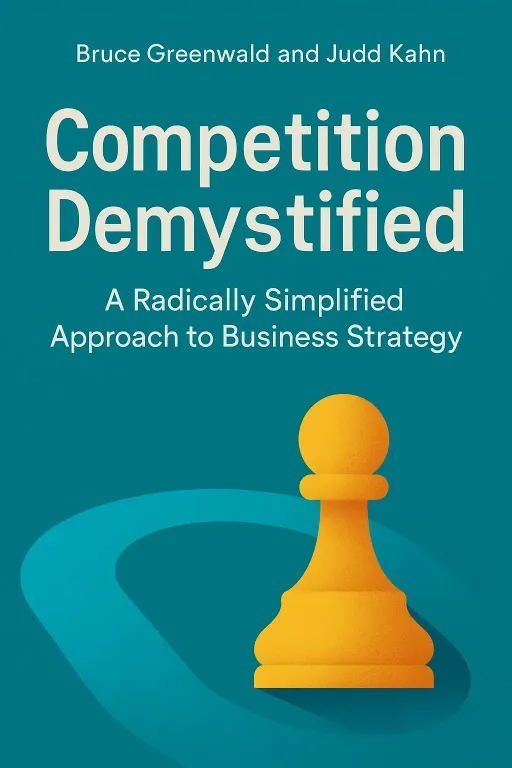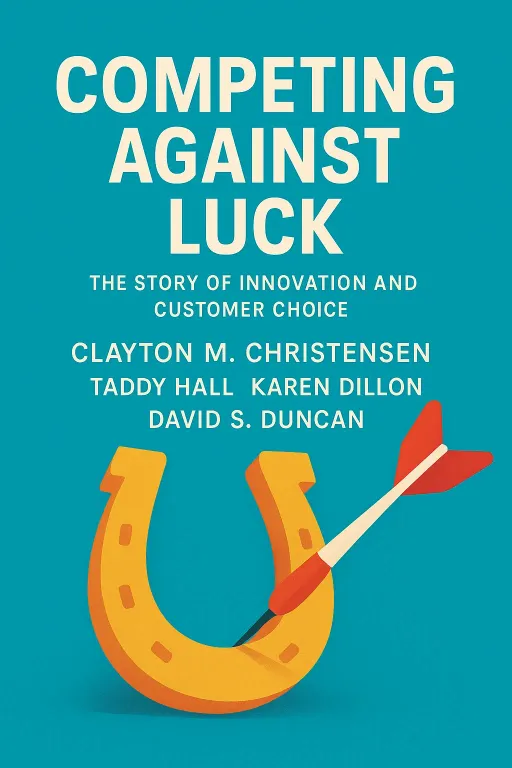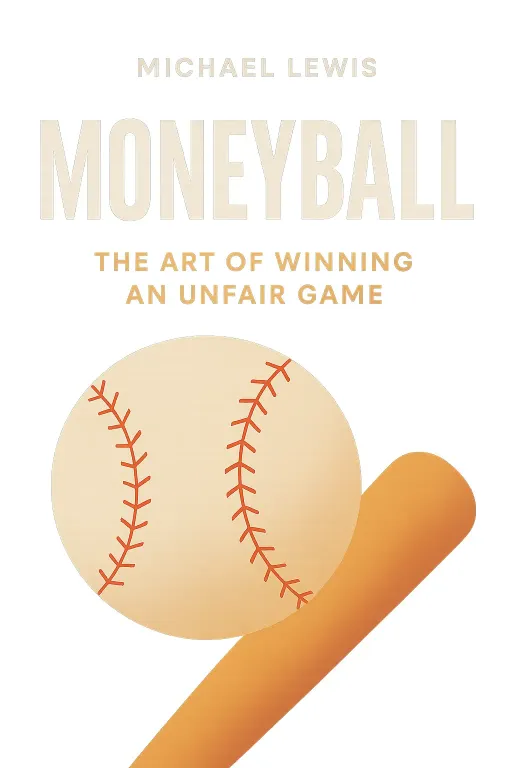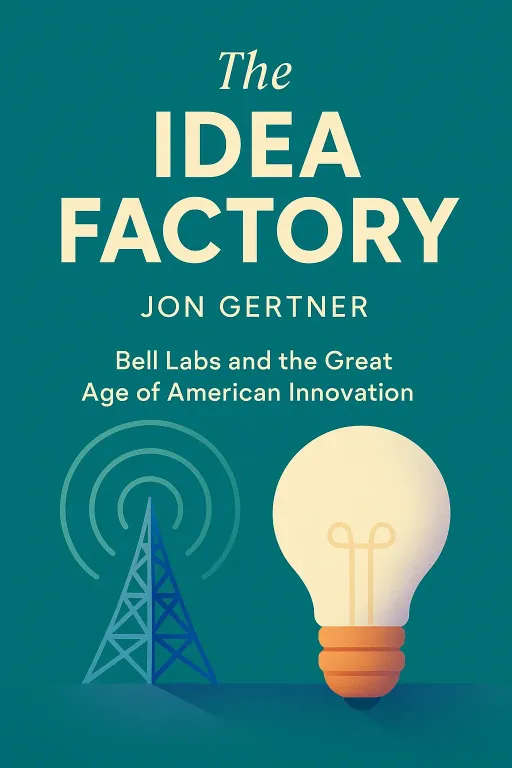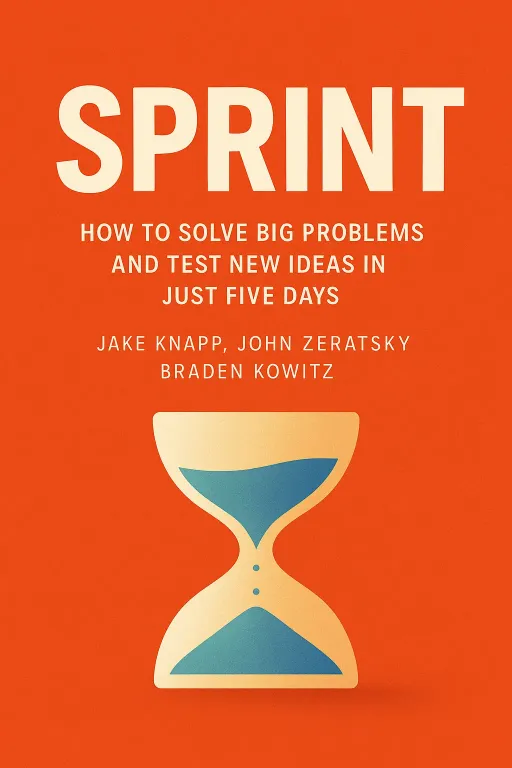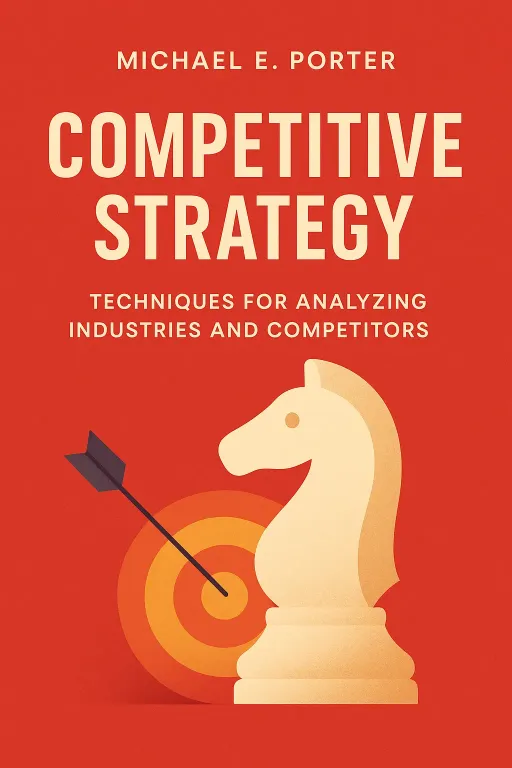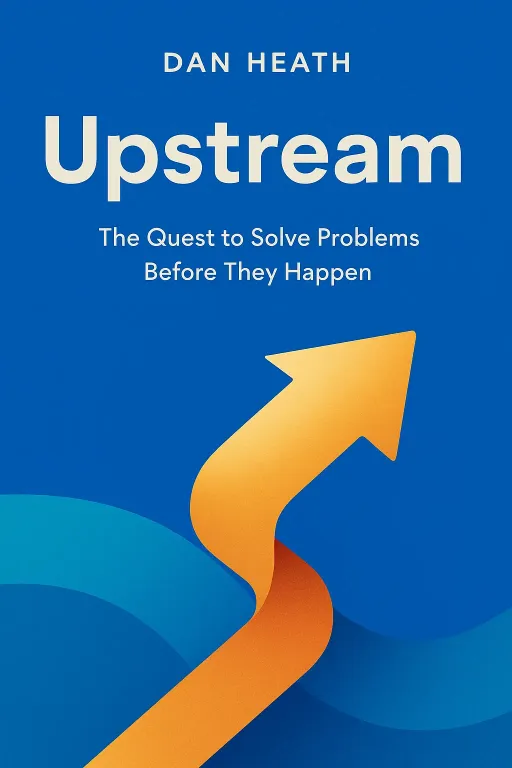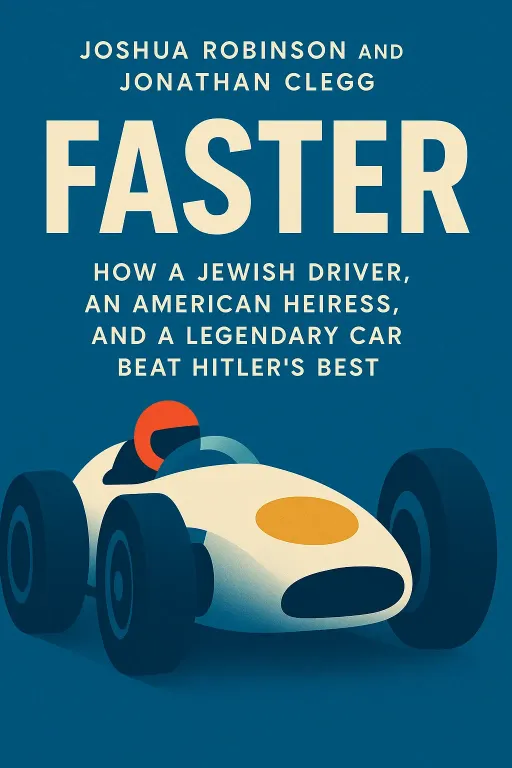
F1's Secret Formula
10 minHow Rogues, Geniuses, and Speed Freaks Thrived in the Cutthroat World of Formula 1
Golden Hook & Introduction
SECTION
Joe: The fastest car doesn't always win in Formula 1. For over 70 years, the winner has often been the team that's best at cheating... legally. The real race is in the loopholes. Lewis: Hold on, legally cheating? That sounds like a contradiction. I thought F1 was the pinnacle of engineering and driving skill, not a bunch of lawyers arguing over rulebooks. Joe: It's both! And that's the central idea in a fantastic book we're diving into today, The Formula: How Rogues, Geniuses, and Speed Freaks Thrived in the Cutthroat World of Formula 1, by Joshua Robinson and Jonathan Clegg. Lewis: Oh, I like that title. It sounds more like a crime thriller than a sports book. Joe: It reads like one, too. What's great is that the authors are both top sports journalists at The Wall Street Journal. They grew up in Europe as massive F1 fans, then, like a lot of people, their interest faded when the sport got a bit... predictable in the 2000s. So they wrote this book to answer the question: how did F1 come roaring back to become the fastest-growing sport on the planet? Lewis: That’s a great perspective to have. They saw the decline and the comeback. So, where does this story of "legal cheating" begin? Joe: It begins with the very DNA of the sport. With the original mavericks, the guys I call the Loophole Kings.
The Loophole Kings: Innovation as Warfare
SECTION
Lewis: The Loophole Kings. I love it. Who were they? Joe: The archetype is a man named Colin Chapman, the founder of Lotus cars in the 1950s and 60s. He was this brilliant, obsessive, and frankly, dangerous engineer. His mantra, which defined a generation of F1 design, was simple: "Adding power makes you faster on the straights. Subtracting weight makes you faster everywhere." Lewis: That makes intuitive sense. Lighter car, faster car. What’s so revolutionary about that? Joe: Well, everyone knew it, but Chapman took it to a fanatical extreme. While teams like Ferrari were obsessed with building bigger, more powerful engines, Chapman was looking at airplane design. He pioneered the "monocoque chassis," where the car's skin is also its skeleton. It was incredibly light and stiff, a massive leap forward. But to make it work, he made every single component as light as physically possible, often with no margin for error. Lewis: Okay, so he was like the Steve Jobs of F1? A visionary, a genius, but maybe a bit ruthless in his pursuit of perfection? Joe: Exactly. And that’s where the dark side comes in. His cars were so light they were notoriously fragile. Drivers loved the speed but knew they were sitting on a knife's edge. So many legendary drivers, like Jim Clark and Jochen Rindt, died in Lotus cars. The pursuit of that "unfair advantage," as another engineer called it, came at a human cost. Lewis: Wow. That's a heavy trade-off. Is that spirit still alive in F1 today? This idea of finding an edge in the gray areas of the rules? Joe: Absolutely. The book profiles Adrian Newey, who is arguably the greatest designer in F1 history and the brain behind Red Bull's dominance. His process is fascinating. He says he locks himself away with the new rulebook for weeks. He’s not just reading what’s allowed; he’s searching for what the rules don't say. He’s looking for the empty spaces, the vague phrases, the things the regulators forgot to forbid. Lewis: So he’s literally designing the car around the silences in the rulebook. That’s incredible. It’s like a form of technological warfare. Joe: It is. And that’s the first part of "the formula." The sport is driven by this relentless, almost pathological need to innovate and find an edge that nobody else has. But engineering genius alone doesn't explain how this niche sport of British garage tinkerers became a global, multi-billion-dollar circus.
The Ringmaster and The Prancing Horse
SECTION
Lewis: Yeah, that’s the part I’m curious about. You have these engineering wizards, but how does a sport like that become so glamorous? How does it become the playground for billionaires and celebrities? That feels like a totally different kind of genius. Joe: It is. And for that, you need to look at two other titans of the sport. The first is Enzo Ferrari. The book paints this incredible picture of him. He wasn't just a car maker; he was a myth maker. He famously said he only sold road cars to fund his racing team, the Scuderia. Lewis: So the iconic red Ferrari you see on the street was basically just a fundraising tool for his real passion? Joe: Precisely. And that created this incredible mystique. To own a Ferrari was to buy a piece of the racing dream. But he was also a brutal leader. The book quotes the Vatican's newspaper, which once called him "an industrial Saturn who continues to devour his own sons" because so many of his drivers died. He was utterly consumed by winning, and the brand was built on that fire. Lewis: That’s intense. So Ferrari built the brand, but who built the business? Who turned that mystique into a global enterprise? Joe: That would be the ultimate ringmaster: Bernie Ecclestone. The book portrays him as this Dickensian character who started out selling cookies in the schoolyard and flipping used cars. He saw F1 not as a sport, but as a product. Enzo Ferrari once told him, "The sport is on the table, and the business is under it." Lewis: I love that quote. What does it even mean? Joe: It means the public sees the racing, the glamour, the heroic drivers. But the real action, the real power, is in the deals happening underneath. Ecclestone understood this better than anyone. In the 1970s, the teams were disorganized. They’d show up to races and haggle with local promoters for prize money. Ecclestone united them and took control. Lewis: How did he do that? Joe: He did two things. First, he seized control of the television rights. He realized that the real audience wasn't at the track; it was at home. He packaged the TV rights and sold them globally, making himself and the teams incredibly rich. Second, he welcomed tobacco sponsorship. Marlboro, in particular, poured millions into the sport, which not only funded development but also made the cars look incredible on TV. Lewis: So he basically created the modern sports business model for F1. But the book suggests he was a controversial figure. Joe: Hugely. He thrived on ambiguity. One of his associates is quoted saying Bernie told him, "Your problem is, you always want things absolutely clear. And sometimes it’s better if things are not clear." He used that vagueness to maintain control for 40 years. He was the benevolent dictator of F1. But by the 2010s, his model was starting to crack. The sport was becoming stale, predictable, and was failing to connect with a younger audience.
The Netflix Effect: F1's Modern Reinvention
SECTION
Lewis: Which is where I, and I think a lot of our listeners, came in. F1 felt like this closed-off, complicated thing. And then, suddenly, everyone I knew was talking about it. Joe: Exactly. Ecclestone sold F1 to a private equity firm, CVC, who then sold it to Liberty Media in 2017. The new owners inherited a sport that was, in the words of one of their execs, "impenetrably exclusive." The broadcasts were boring, they had no social media presence, and the focus was entirely on the top two or three cars. Lewis: And then came Drive to Survive. I am not exaggerating when I say that show is the reason I’m an F1 fan today. How did a Netflix series manage to do what the sport itself couldn't for decades? Joe: The show's producers, the team behind the brilliant Senna documentary, understood something fundamental: the drivers are the stars, not the cars. For decades, F1 broadcasts focused on the race leaders. Drive to Survive ignored them, at first. Mercedes and Ferrari didn't even participate in season one. So the show focused on the midfield teams. Lewis: Like the Haas team, with their team principal Guenther Steiner, who became this unlikely, foul-mouthed star. Joe: Exactly! The show revealed the human drama: the rivalries, the pressure, the heartbreak. It wasn't about aerodynamics; it was about people. And it worked. The book cites Nielsen data showing F1 gained 73 million new fans in just a couple of years, with massive growth in the US. Lewis: But that created a new kind of controversy, right? The show sometimes... exaggerates rivalries. And the sport itself seems to be leaning into the drama. Joe: It has. The 2021 season finale in Abu Dhabi is the perfect example. It was one of the most controversial moments in sports history, with a race director making a call that effectively handed the championship to Max Verstappen over Lewis Hamilton. It was a mess for the sport's integrity. Lewis: A total mess. People were furious. Joe: They were. But from an entertainment perspective? It was pure gold. The drama was off the charts. Millions of people who had never watched a race were suddenly debating F1 rules. And the book argues that this is the new formula. Liberty Media realized that drama, even controversial drama, is content. It drives engagement. As Mercedes boss Toto Wolff said, even though he was on the losing end, the event was "a mark in history."
Synthesis & Takeaways
SECTION
Lewis: Wow. So when you put it all together, what is "the formula" for F1's success? Is it the engineering, the business deals, or the showmanship? Joe: The book’s brilliant conclusion is that the formula is reinvention. F1 has survived for over 70 years because it’s a shapeshifter. It started as a raw, dangerous sport for engineering purists. Then it became a sophisticated, exclusive global business under Ecclestone. And now, it’s a mainstream, character-driven content machine under Liberty Media. The one constant is the relentless, ruthless pursuit of an edge—whether that’s a loophole in the rulebook, a new market to exploit, or a new way to tell a story. Lewis: That’s a powerful idea. That survival depends on the ability to completely change your identity. Joe: It is. But it also leaves us with a really provocative question, one the book doesn't shy away from. Max Verstappen, the current champion and a racing purist, has criticized the new direction, saying it feels like "99 percent entertainment, one percent racing." Lewis: I can see his point. You don't want it to become a reality show with cars. Joe: Exactly. So the final question the book leaves us with is this: As Formula 1 becomes more of an entertainment product, as it leans into the Hollywood drama, does it risk losing the very soul of competition that made it so compelling in the first place? Lewis: That's the billion-dollar question. It's a fascinating tightrope to walk. For our listeners, what are your thoughts? Is the new, drama-filled F1 better, or has something been lost? Let us know what you think. Joe: It’s a debate that’s as intense as any rivalry on the track. This has been a deep dive into a truly fantastic book. Lewis: This is Aibrary, signing off.
